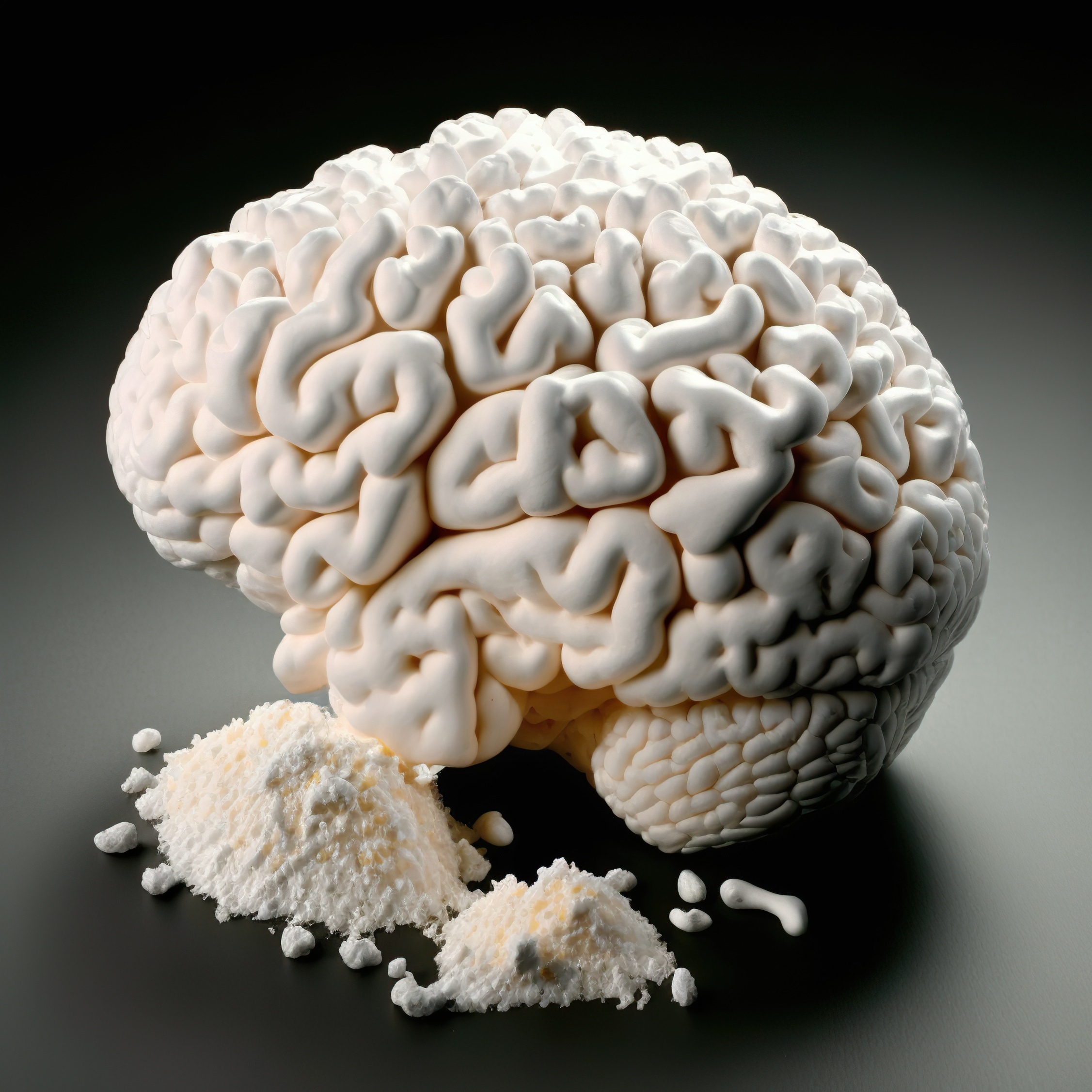Food for Thought: How Your Diet Directly Affects Brain Health and Cognitive Function
February 8, 2025
 140
140 
The food you eat doesn’t just impact your body—it also affects your brain. Research suggests that eating an anti-inflammatory, plant-based diet can help improve memory, focus, and overall brain function while lowering the risk of brain diseases like Alzheimer’s.
According to the World Health Organization (WHO), more than 55 million people worldwide have dementia, and that number is expected to reach 150 million by 2050. However, studies indicate that up to 45% of dementia cases might be preventable by managing risk factors like high blood pressure, high cholesterol, diabetes, and obesity—all of which are linked to chronic inflammation (Livingston et al., 2020).
Making healthier food choices can reduce inflammation and help protect your brain.
Inflammation plays a big role in diseases like Alzheimer’s. Drs. Dean and Ayesha Sherzai, authors of The Alzheimer’s Solution, explain that several factors contribute to brain inflammation:
These factors harm brain cells and blood vessels, making it harder for the brain to clear waste. This damage can lead to the buildup of amyloid plaques, which are linked to Alzheimer’s disease (Sherzai & Sherzai, 2017).
Your brain uses 20% of your body’s energy, which means the food you eat directly affects brain function. According to Dr. Megan Lee, an assistant professor at Bond University, nutrients from food provide the brain with fuel, repair mechanisms, and communication signals needed for thinking and memory (Lee, 2023).
A 2023 study in the European Journal of Epidemiology looked at how diet affects brain development in children. Researchers found that:
This shows that diet matters from an early age and can shape brain health for life.
One diet designed specifically for brain health is the MIND Diet (Mediterranean-DASH Diet for Neurodegenerative Delay). It combines two well-known healthy eating patterns:
The MIND Diet encourages:
A 2023 study in The American Journal of Clinical Nutrition found that older adults who followed the MIND Diet had better cognitive function and experienced slower brain aging (Liu et al., 2023).
Eating a diet high in ultra-processed foods may increase the risk of brain disorders. A 2023 meta-analysis in the Journal of Neurology found that people who ate more processed foods had a higher risk of dementia, including Alzheimer’s (Zhong et al., 2023).
Why?
Dr. Megan Lee says that a plant-based diet rich in antioxidants, fiber, and healthy fats can protect the brain and improve mood and memory (Lee, 2023).
There’s no one-size-fits-all brain-healthy diet, but choosing more whole, plant-based foods while cutting down on processed foods can make a big difference.
Dr. Laura M. Ali, a registered dietitian, recommends:
Some research suggests that unprocessed red meat in moderation may not be harmful and could even support brain health (Zhang et al., 2023). However, processed meats like bacon and hot dogs are linked to a higher dementia risk.
The key takeaway? Your diet plays a huge role in brain health—both now and in the future.
By making better food choices today, you can keep your brain healthy and sharp for years to come.

A new study suggests that a widely used sugar substitute found in diet sodas, chewing gum, and low-sugar yogurt may elevate insulin levels. This could increase the long-term risk of heart disease. “Artificial sweeteners have infiltrated nearly all types of food, making it crucial to understand their long-term health effects,” said Yihai Cao, senior author […]

Diet Coke has long been a fan-favorite among soda lovers who want a fizzy, guilt-free alternative to traditional soft drinks. While its zero-calorie, zero-sugar label makes it seem like a healthier option, the reality is far more concerning. Despite its undeniable popularity, Diet Coke’s nutritional profile has raised red flags among health experts for years. […]

New study shows that embracing an anti-inflammatory, plant-forward diet can support cognitive function and help reduce the risk of dementia. What You Eat Shapes Your Brain The food you eat doesn’t just impact your body—it also affects your brain. Research suggests that eating an anti-inflammatory, plant-based diet can help improve memory, focus, and overall brain […]